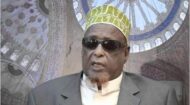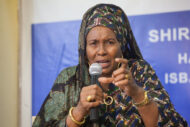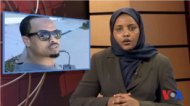

The American author criticizes U.S. accommodations to Saudi Arabia, Iran amid widespread proxy wars in Yemen, Iraq.
U.S. diplomatic contortions have left it without an apparent strategy for stability in the Middle East, particularly in the war against the Islamic State group, says American activist and author Ayaan Hirsi Ali, herself a former Muslim of Somali descent.
“I think our approach today – and I just want to use the most politically correct word I can come up with now – it’s incoherent,” Hirsi Ali said Tuesday, while speaking at the National Press Club in Washington, D.C. She was responding to a question about the limited U.S. air campaign against the Islamic State group in Iraq and Syria, also known as ISIS or ISIL, and how that comports with the Obama administration’s hands-off military policy elsewhere in the region, particularly Yemen.
[READ: Who Gets What Out of the Iran Nuclear Deal?]
Murky policies and the appearance of disengagement stem from an imperfect relationship between the U.S. and Saudi Arabia, run by a regime with a questionable history of human rights, and its diametric foe Iran, with whom Obama has insisted on negotiating over its nuclear program.
“We’re fighting ISIS alongside Iran, Saudi Arabia and other Sunni governments that are our allies,” she said. “They’re waging proxy war in Iraq, in Syria, and Yemen. We’re supporting both of them but we’re also opposing them.”
“Our policies and our approach to the Middle East right now is incoherent, and the Middle East is in crisis. What was called Islamic civilization is in crisis,” she said.
[ALSO: Obama’s Middle East Policies Leave Saudi Arabia, Iran to Fight it Out]
Hirsi Ali faults the U.S. for not persuading followers of Islam to reject Sharia Law – the hardline rules governing Muslims’ day-to-day lives according to ancient interpretations of the Koran and other religious texts. The U.S. also has done little to counter Islamic extremists’ rhetoric that America is simply greedy, interested in oil and supporting despotic leaders to feed its consumerism, she said. America should instead promote a narrative of volunteerism and philanthropy, she said.
Obama has in recent weeks come under criticism elsewhere for his strategy against organizations like the Islamic State group, including his refusal to classify them as “Islamic extremists.”
Hirsi Ali’s latest book, “Heretic: Why Islam Needs a Reformation Now” was released in March.

 All Posts
All Posts









